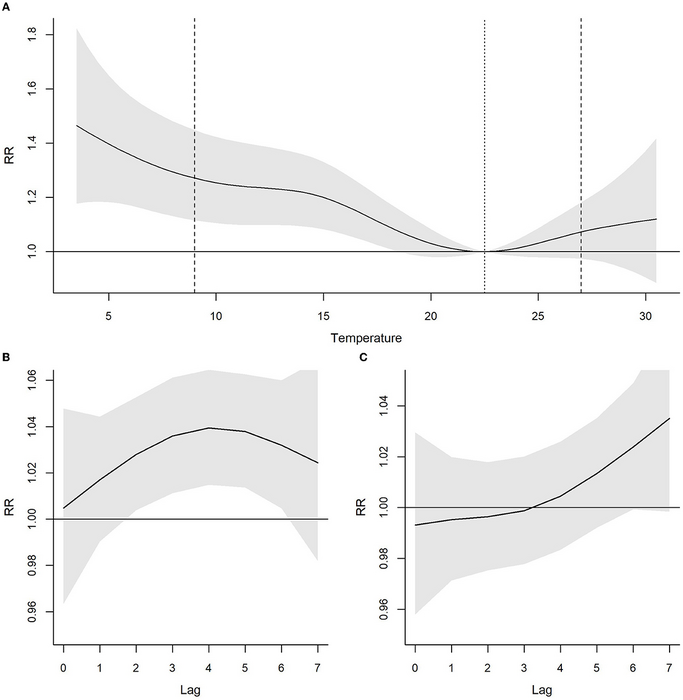A retrospective study of temperatures in the province of Barcelona reveals that low temperatures increase the risk of going on a period of sick leave, due in particular to infectious and respiratory diseases. The study, carried out by researchers from Center for Research in Occupational Health (CISAL) and the Department of Medicine and Life Sciences at UPF (MELIS); the Barcelona Institute for Global Health (ISGlobal), an institution supported by the “la Caixa” Foundation and CIBER of Epidemiology and Public Health (CIBERESP), shows that the sectors of the population most affected are women, young people and people who work in the services sector who carry out non-manual tasks which tend to be done in indoor spaces.

Credit: Authors of the research
A retrospective study of temperatures in the province of Barcelona reveals that low temperatures increase the risk of going on a period of sick leave, due in particular to infectious and respiratory diseases. The study, carried out by researchers from Center for Research in Occupational Health (CISAL) and the Department of Medicine and Life Sciences at UPF (MELIS); the Barcelona Institute for Global Health (ISGlobal), an institution supported by the “la Caixa” Foundation and CIBER of Epidemiology and Public Health (CIBERESP), shows that the sectors of the population most affected are women, young people and people who work in the services sector who carry out non-manual tasks which tend to be done in indoor spaces.
According to the study published in Frontiers in Public Health, the length of sickness absences increases from between two and six days following a period of low temperatures. This rise in sickness absence could be caused by the increase in the circulation and transmission of pathogens such as bronchitis or the flu virus, in indoor spaces, which cause infections of the upper respiratory tract.
“It is important that by monitoring occupational health the elements that cause sickness absence can be identified in order to develop effective measures that go towards improving the health of working people”
Temporary inability to work, commonly called sick leave, is a complex phenomenon which affects the quality of life of working people and the economy, and extends to society as a whole, albeit in different ways. That is why “it is important that by monitoring occupational health the elements that cause sickness absence can be identified in order to develop effective measures that go towards improving the health of working people and their quality of life, and reducing the costs for business people and the social security system“, explains Xavier Basagaña, coordinator of the study.
Women stand out among those most affected by this phenomenon. “It shouldn’t come as a surprise that women have more sickness absences because they still have more precarious jobs and with worse working conditions than men. Even when this is not the case, women carry more family and care responsibilities, especially if they have children”, explains Mireia Utzet, lead author of the study, and Amaya Ayala-García.
In the study, around 100,000 periods of sickness absence and more than 40,000 salaried people were analysed from the Barcelona province between 2012 and 2015. Surprisingly, the study found no relationship between rises in temperature and sickness absence. This lack of a correlation could be due to the nature of the cohort studied, in which a greater number of workers from the third sector were represented, who work in indoor spaces which are often air-conditioned.
This study was initiated by CISAL and CIBERESP researcher Fernando G. Benavides and was based on the cross-referencing of administrative registers from social security data and registers of sickness absence, which allowed highly reliable results to be extracted at low cost.
Reference article:
Utzet M, Ayala-Garcia A, Benavides F. G, Basagaña X. “Extreme temperatures and sickness absence in the Mediterranean province of Barcelona: An occupational health issue”. Front Public Health. 2023;11:1129027. DOI: 10.3389/fpubh.2023.1129027
Journal
Frontiers in Public Health
DOI
10.3389/fpubh.2023.1129027
Subject of Research
People
Article Title
Extreme temperatures and sickness absence in the Mediterranean province of Barcelona: An occupational health issue
Article Publication Date
20-Feb-2023




